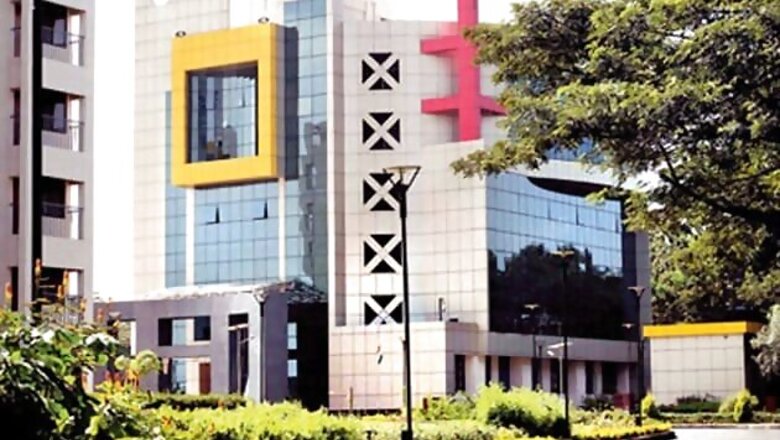
views
Bangalore: Where in Bangalore will you find a zero waste campus? Seems impossible, but hold your thoughts, we are about to break that myth. The Direct Taxes Regional Training Institute (DTRTI), located in Jalahalli at HMT Watch Division have set an example with their green initiatives. World famous author, Albert Wood rightly said, “Waste is a tax on the whole people,” and keeping his words in mind, DTRTI carries out rigorous waste segregation at source, recycling of paper and mechanical composting of the organic kitchen, dining and garden waste.
One of the senior officials from DTRTI informed City Express, “We believe everything has a value and nothing is waste. Hence, we have given two dustbins to everyone, one for accumulating organic waste and another for inorganic. We do not follow the household or commercial tradition of using a black plastic bag as a cover in the dustbins, as it traps the oxygen and this releases the toxic gases that forms a leaching substance. This is the sole reason why garbage creates a bad stink.”
The campus has its own organic converter plant built at a cost of Rs 5 lakh, wherein the organic waste is converted into good manure and used for gardening purposes in the campus. India imports about 5000 tones of paper from Europe every year and in an effort to reduce this burden, DTRTI has undertaken recycling of papers too. In fact, the used water is also recycled in their plant and is utilised for toilet and gardening purposes.
Another commendable but a rather simple green initiative undertaken by the Institute is harvesting of natural light. A culture of power saving has been evoked among all their employees and students. Each room is structured in such a way that natural light provides all the necessary lighting.
Besides, every drop of water that falls on the roof tops is collected in a sump which is actually a way of Rain Water Harvesting. The campus has two borewells, however, even after digging upto 700-800 feet, water could not be found, at present they are charging it. As far as gardening is concerned, the institute has 103 species of medicinal plants in their campus. From Rosa Indica which is useful in curing Kidney bladder problems, zingiber zerumbet plant that treats fungal skin, Aloe vera, lemon grass, to herbal tea plants-one can find a host of them.
One of the most interesting measures that the institute follows is food is strictly kept outside the purview of the campus and limited only to the canteen. “Food attracts ants, cockroaches, hence, we do not bring food inside. The utensils are also washed at once, so there is no question of cockroaches,” said another senior official.
The yearly maintenance of entire housekeeping comes to Rs 1.2 crore per year. The institute has a capacity of 280 trainees and the hostel has a capacity of 110 trainees. The entrance of the building has a beautifully carved glass work mosaic by a small town artist. In fact, the classrooms are devoid of projectors in spite of the international teaching standards as projectors are termed to be anti-ecofriendly.
A visit to this campus reminds one the pensioner’s paradise that Bangalore was. This campus is an inspiration for many communities and other institutes. In fact, today the need of the hour is such green initiatives by various communities and organisations. Besides, their initiatives is a recall for our civic agencies and the role that they has been playing so far. If DTRTI can do it, so can the civic agencies. But what is that stopping them to bring back the green cover to the Garden City.


















Comments
0 comment